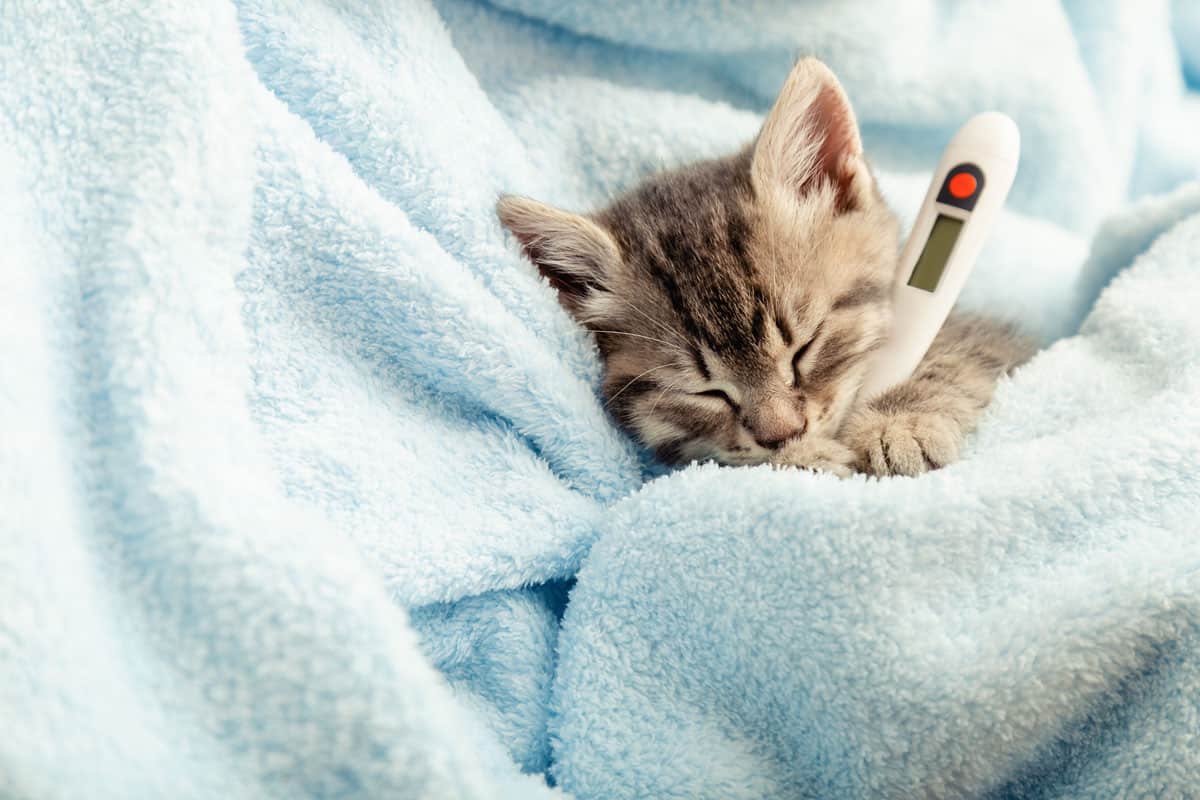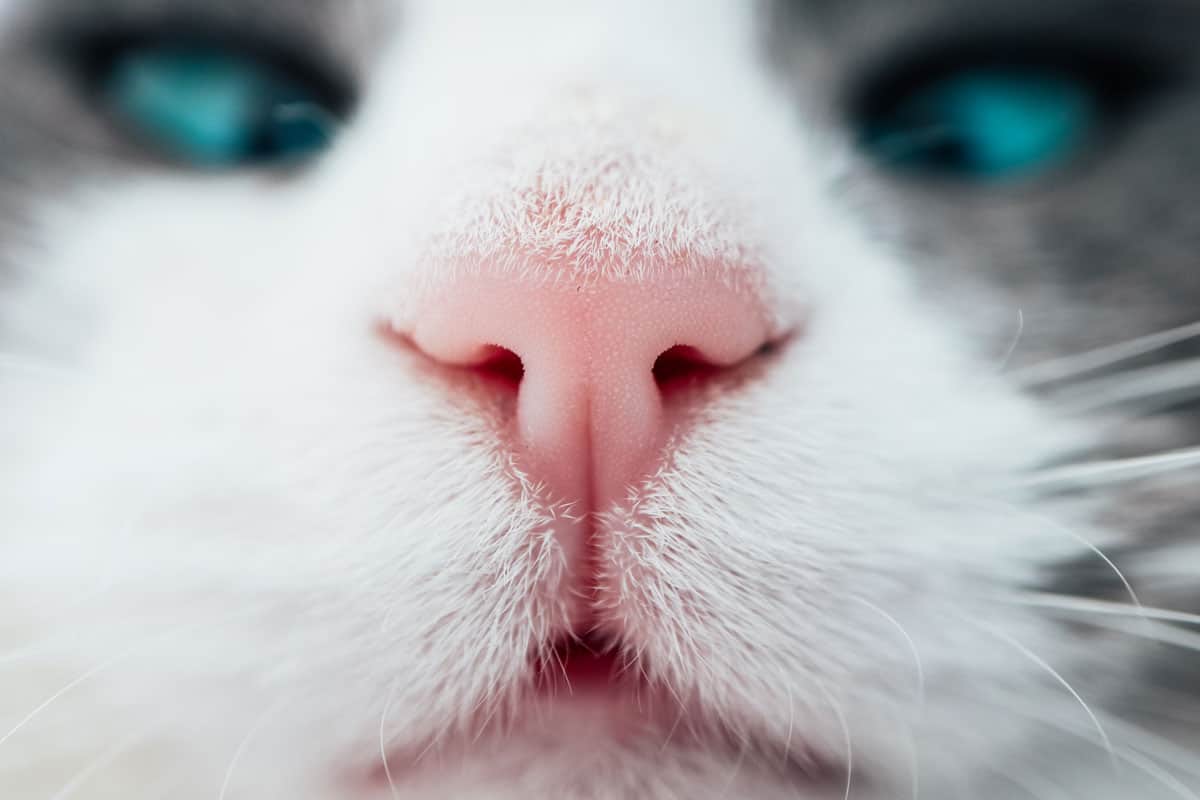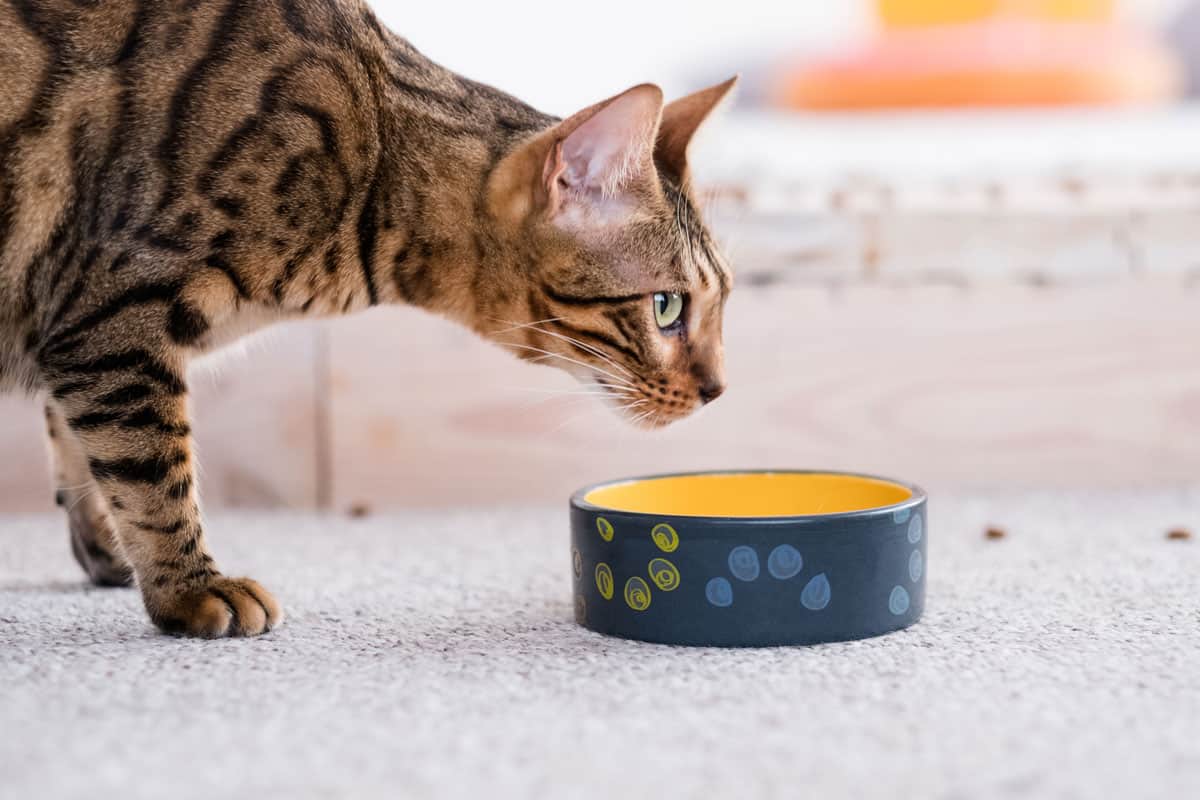You and your cat share a special bond, communicating through meows and gestures. But have you ever wondered if your cat is trying to tell you something more? How can they let you know when your kitty is sick or needs assistance?
In this article, we'll explore the various ways your cat communicates their discomfort or illness. From mood changes to litter box habits, your cat has several ways to signal that they require your attention.
By recognizing these signs, you can provide the care your furry friend needs to stay healthy and happy.
So, let's dive into the 10 ways to tell if your kitty is sick or needs help. Your cat's well-being is our top priority!

Signs Your Kitty Needs Help
Is your cat happy and contented or is something worse going on deep below the surface? How can your cat tell you they’re ill or need help?
Cats have plenty of ways to let you know they’re not feeling their best, including:
- Mood or personality changes
- Stinky breath
- Drinking more water
- Struggling physically
- Vocalizing more often
- Lethargy
- Matted or greasy coat
- Lack of appetite
- Discharge
- Litter box changes
Taking one of these signs at face value might not mean much, but if you spot several, your kitty is telling you in every way they can that they need your help.
Keep reading for more information on the above symptoms and what to do when your cat is in dire straits!
10 signs your cat is under the weather
1. Mood or personality changes
You know your kitty’s regular disposition.
You can also tell when they’re having an off day (which all cats do!) or if something else is happening.
If your normally sweet, cuddly cinnamon roll of a cat suddenly displays aggression, that’s not a great sign.
It’s also not good if they hiss at you all the time when they’ve never hissed before recently.
Both changes indicate your cat might be in pain or under the weather.

2. Stinky breath
Your kitty loves to climb on your chest while you sleep, get up in your face, and meow loudly.
You don’t even need an alarm clock most days!
You know what their breath smells like thanks to your morning routine. If their breath smells worse than usual and you haven’t fed your kitty breakfast yet, it’s a dental problem.
Your cat could have an oral infection, especially if you also see oral bleeding and/or drooling.
An oral infection can spread to other organs, including the heart.
3. Drinking more water
A thirsty feline might not seem like anything to panic over at first.
Perhaps it’s a warm day, or your cat is just really thirsty.
Sure, maybe, but if the matter persists, you can’t ignore it. An overly thirsty kitty could have diabetes mellitus or kidney disease.
4. Struggling physically
You’ve seen your cat pull off some amazing jumps!
You might have even posted the footage and shared it with the world on YouTube or TikTok.
Lately, your kitty struggles with the small, basic jumps it does every day like jumping onto the couch or reaching its favorite perch of the cat tree.
Is your kitty also limping? They could have a sprain or another injury if they’re younger, but older felines might have arthritis.
An injured cat can behave pretty much normally otherwise but still needs help.
5. Vocalizing more often
Your cat croons with the best of ‘em.
You love how vocal they are, but lately, it’s more than usual. Like, a lot more.
Although some cat owners might be delighted with this vocal change at first, it’s not always a good sign.
Cats don’t have conversations like we people do. They meow because they want something.
Maybe they’re bored or stressed.
Your cat could also be in pain or sick and trying to let you know in their own special way.
Check out this video to decode why your cat is more vocal.
6. Lethargy
Cats spend up to 16 hours a day sleeping, so it’s normal for your kitty to snooze while you’re out and about.
It almost seems like your kitty waits until you’re asleep to go nuts.
When your cat sleeps for longer than 16 hours or is awake but refuses to move, pay attention to their lethargic behavior. Your cat could be sick, injured, or otherwise need assistance.
7. Matted or greasy coat
Cats groom to keep themselves clean, so when they stop, that’s telling.
Your kitty might not be able to reach it because they’re injured.
If they’re sick, they might not have enough energy to groom.

8. Lack of appetite
Your cat never misses mealtime. If anything, they usually have to remind you to feed them!
A cat can skip a meal or eat less from time to time and still be healthy.
If your feline friend makes a habit of not eating, something’s wrong.
9. Discharge
Does your kitty have ear discharge or debris?
Maybe you’ve spotted nasal or eye discharge.
The discharge means different things depending on where it comes from.
Ear discharge can indicate parasites or an ear infection.
Nose or eye discharge might be a symptom of an upper respiratory infection.
If your cat has an upper respiratory infection, other kitties in the house can also catch it.
10. Litter box changes
You don’t like to stare when your cat does its thing in the box, but you can’t ignore what your feline deposits in the box either.
If your kitty has to pee all the time when they never used to go more than a few times a day, maybe they have a kidney problem.
It could also be a urinary tract infection.
What should you do if your kitty seems sick or needs help?
Spend some time evaluating your cat if these symptoms ring true to you.
You may just find that some stop, but if any signs worsen, you shouldn’t waste time.
Contact your vet and schedule a checkup.
Maybe nothing is wrong with your cat, but at least you heard that from the mouth of a professional.
More than likely, if your kitty is behaving oddly, something is wrong.
Your vet has a lot of diagnostic tools to confirm an injury or illness.
Depending on what the vet finds, they should recommend a treatment for your feline friend.
Usually, within a matter of days or weeks, your favorite pet will feel better and be back to their old selves again.
However, if your cat isn’t responding to treatment, or if their issue disappears and comes back, you need to take them to the vet again.
Emergency symptoms you can’t ignore
You can play the waiting game with the above signs, but not these. They’re serious and your cat needs emergency attention if you see them.
- Haven’t eaten in 24 hours or eaten a full meal
- Body temperature has dropped under 99 degrees Fahrenheit
- Body temperature is higher than 104 degrees
- You saw them ingest something toxic
- Trying to urinate, but nothing comes out
- Severely bleeding
- Can’t walk or seem dizzy when on their feet
- They’ve had a seizure or collapse and are unresponsive
- Pale or blue gums
- Breathing very quickly or very slowly
Ensuring Your Cat's Well-Being
Our feline companions hold a special place in our hearts, yet the inability to communicate with them in our language can be distressing. However, by attuning ourselves to both verbal and nonverbal cues, we can decipher when our cats are unwell, injured, or in need of assistance.
If you notice any of the signs discussed earlier in your cat, it's crucial to take immediate action. Getting them to the veterinarian promptly can make all the difference and potentially save their life. Remember, you play a pivotal role in advocating for your cat's health and well-being.
Curious about cat health? You might find this article interesting: Do Calico Cats Have More Health Problems?
Some elements on this page may have been created by our team using advanced AI to provide you with top-notch cat inspired ideas. Read more about our AI Content Policy.
